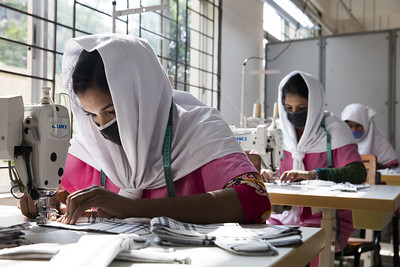
Required Readings
The complete reading list is available here.
For each of the required readings listed below, you should complete the reading response exercise in gradescope before the class meeting where we will discuss each reading. Reading-specific due dates are listed below. Responses are due by 2:00 AM on the due date.
1. Gender Norms Among Non-Human Primates
Hrdy, Sarah Blaffer. 1981. The Woman that Never Evolved.
Reading Guide: The Woman that Never Evolved
Reading Questions: The Woman that Never Evolved (due Wednesday 9/11)
2. Lessons from Ancient DNA
Reich, David. 2018. Who We Are and How We Got Here: Ancient DNA and the New Science of the Human Past, Chapters 1 through 6 and Chapter 10.
Handed out on the first day of class.
Reading Guide: Who We Are and How We Got Here
Reading Questions: Who We Are and How We Got Here (due Wednesday 9/18)
3. The Historical Roots of Modern Gender Norms
Alesina, Alberto, Paola Giuliano, and Nathan Nunn. 2013. “On the Origins of Gender Roles: Women and the Plough.”
Becker, Anke. 2021. “On the Economic Origins of Restricting Women’s Promiscuity.”
Becker, Sascha O., and Ludger Woessman. 2008. “Luther and the Girls: Religions Denomination and the Female Education Gap in Nineteenth-century Prussia.”
BenYishay, Ariel, Pauline Grosjean, and Joe Vecci. 2017. “The fish is the friend of matriliny: Reef density and matrilineal inheritance.”
Corno, Lucia, Eliana La Ferrara, and Alessandra Voena. 2024. “Female Genital Cutting and the Slave Trade.”
Damann, Taylor J., Jeremy Siow, and Margit Tavits. 2023. “Persistence of gender biases in Europe.”
Grosjean, Pauline, and Rose Khattar. 2019. “It’s Raining Men! Hallelujah? The Long-Run Consequences of Male-Biased Sex Ratios.”
Jakiela, Pamela, and Owen Ozier. 2022. “Gendered Language.”
Talba, Lucienne. 2023. “Of Cattle and (Wo)men: Animal Domestication and Gender Disparities in Sub-Saharan Africa.”
4. Women in Early Modern Europe
Dube, Oeindrila, and S. P. Harish. 2020. “Queens.”
5. The World Wars
Lubcyzk, Moritz, and Petra Moser. 2024. “The Ms. Allocation of Talent.”
Reading Guide: The Ms. Allocation of Talent
6. Missing Women and Investments in Girls
Sen, Amartya. (1990) “More than 100 Million Women Are Missing,” The New York Review of Books.
Jayachandran, Seema, and Rohini Pande. (2017) “Why Are Indian Children So Short? The Role of Birth Order and Son Preference”
Reading Guide: Why Are Indian Children So Short?
7. Girls’ Education
Borker, Girija. (2021) “Safety First: Perceived Risk of Street Harassment and Educational Choices of Women.”
8. Women’s Labor Force Participation in Patriarchal Societies
Jensen, Robert. (2012) “Do Labor market Opportunities Affect Young Women’s Work and Family Decisions? Experimental Evidence from India.”
Reading Guide: Do Labor market Opportunities Affect Young Women’s Work and Family Decisions
9. Women in the Military
Greenberg, Kyle, Melanie Wasserman, and Anna Weber. 2024, “The Effects of Gender Integration on Men: Evidence from the U.S. Military.”
10. The Child Penalty
Olivetti, Claudia, and Barbara Petrongolo. 2017. “The Economic Consequences of Family Policies: Lessons from a Century of Legislation in High-Income Countries.”
11. Reproductive Rights
Londoño-Vélez, Juliana, and Estefanía Saravia. 2024. “The Impact of Denying a Woman a Wanted Abortion.”
12. Psychological Constraints and Subconscious Bias
Riley, Emma. (2024) “Role Models in Movies: The Impact of Queen of Katwe on Students’ Educational Attainment.”
13. Interruptions at the Supreme Court
Cai, Erica, Ankita Gupta, Katherine Keith, Brendan O’Conner, and Douglas Rice. 2024. “‘Let Me Just Interrupt You’: Estimating Gender Effects in Supreme Court Oral Arguments.”
14. Women in Economics I: Research Productivity
Sarsons, Heather, Klarita Gerxhani, Ernesto Reuben, and Arthur Schram. 2021. “Gender Differences in Recognition for Group Work.”
15. Women in Economics II: Toxicity
Dupas, Pascaline, Alicia Modestino, Muriel Niederle, Justin Wolfers, and the Seminar Dynamics Collective. 2021. “Gender and the Dynamics of Economics Seminars.”